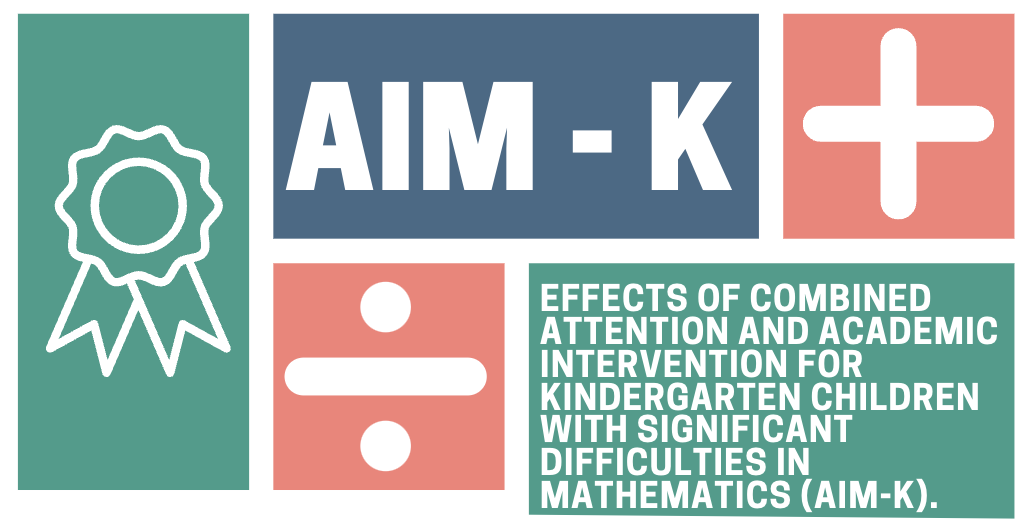AIM-K

What is AIM-K?
Effects of Combined Attention and Academic Intervention for Kindergarten Children with Significant Difficulties in Mathematics (AIM-K).
This NSF-funded project is working to determine whether combined intensive attention training and math intervention for low-performing kindergarten children lead to greater math learning than the same math intervention without attention training. The study will also seek to determine whether the effects of combined training on mathematics are sensitive to the use of quantitative information during attention training.
Our Purpose:
The purpose of this study is threefold:
1. To test the effects of domain-general attention training combined with ROOTS curriculum, domain-specific attention training combined with ROOTS curriculum, and ROOTS curriculum without attention training on math learning and attention in kindergarten students at high risk for mathematics learning disability.
2. To test whether pretest cognitive competencies including attention and related executive functions moderate intervention effects.
3. To test attention and related executive functions as mediators of attention training’s effects on math outcomes.
Further Impact:
Low math skills significantly limit access to post-secondary education, employment, and lifetime earnings. Because math difficulties can be detected early in schooling, early intervention is key for preventing the negative consequences of persistent low math achievement. Kindergarten is a particularly important developmental time window within which to intervene given that children who enter and exit kindergarten with low math knowledge are at high risk for having long-term difficulties in mathematics.